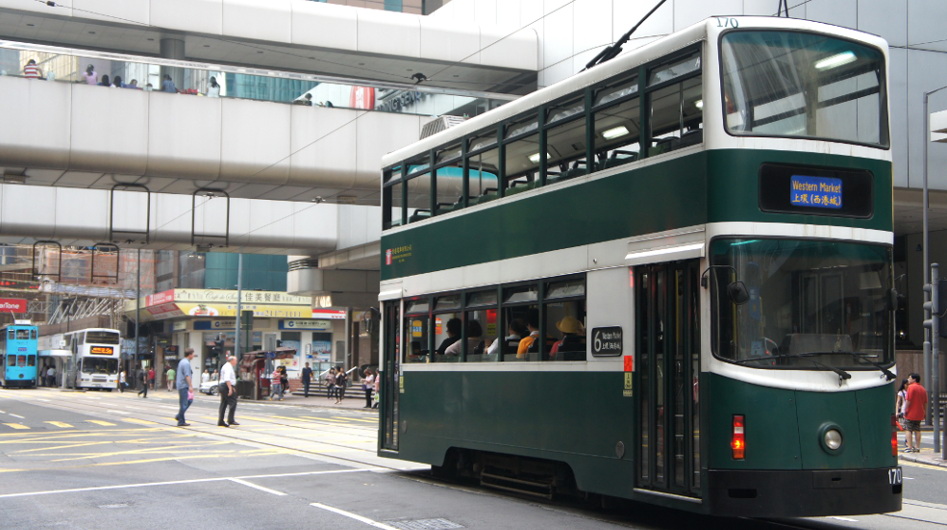
Paul Yip & Sha Feng
Paul Yip and Sha Feng say scrapping this low-cost and convenient mode of transport would hit some Hong Kong people hard, and planners should care about more than just congestion
The proposal to remove tram services between Central and Admiralty to ease congestion has aroused much discussion in the community. It is in fact much more than just a transport issue. A study of transport and social exclusion in the UK in 2003, for example, showed that transport is intrinsically linked to many social policy issues, such as unemployment, public health, the environment, education and urban development.
According to a survey conducted in 2011 of Hong Kong people’s travel patterns, 84 per cent of our journeys to work are by public transport, including on the MTR, buses, trams and ferries. Therefore, the coverage, efficiency, price, stability and convenience of public transport directly affect Hong Kong people’s lives. This was confirmed by one of our studies on remote areas in Hong Kong, which found that the price of transport affected the quality of life of those on a low income.
The government first launched its Transport Support Scheme for job seekers and low-income workers in Tuen Mun, Yuen Long, North and Islands districts in 2007, to help reduce the costs of their transport. This was renamed the Work Incentive Transport Subsidy Scheme in 2011, and coverage was extended to the whole of Hong Kong.
Trams are an affordable, reliable, clean and convenient form of transport for people living on the north side of Hong Kong Island. Statistics from the 2011 census show that the primary mode of transport for those who worked in the Central and Western districts were as follows: 8.9 per cent of them commuted by private car or taxi; 42.5 per cent by MTR; 39.2 per cent by bus; 5.2 per cent by bicycle or travelled on foot; 2.2 per cent travelled by tram; and 2 per cent by ferry. Although people commuting by tram accounted for only a small part of the population, these people belonged to the lowest income group; their median income was only HK$11,000, compared with HK$50,000 for those using a private car or taxi; by MTR (HK$16,000); bus (HK$15,000); and by bike or on foot (HK$12,500).
So, efficiency should not be the only consideration in public policy-making, especially if the benefits go only to a few. Low-income groups trade their time for a less expensive tram ride in order to save money and avoid an adverse impact on their quality of life. Even if scrapping the trams helped ease congestion in Central (for which there is no strong evidence), it would benefit the haves at the expense of the have-nots. That does not seem to follow the principles of impartiality and policy-making for the public good,
What about other countries’ good practices? In Melbourne, for example – regarded by some as the world’s most livable city – private vehicles are banned from the city centre, and only trams and pedestrians are allowed. That not only reduces carbon dioxide emissions but also enlarges citizens’ public space. The city square has become a place for people to meet; the area belongs to the community rather than a privileged few. Moreover, vehicle lanes have been narrowed to make room for more cycle lanes to promote a green and healthy lifestyle.
The suggestion to remove the tram services shows the exact opposite thinking of a progressive and civilised city. Private car drivers need to adapt, to share community resources with other road users, to live in a harmonious society.
The idea of Hong Kong without its trams is just as absurd as San Francisco without its famous cable cars. And we should not forget that a tram ride is a wonderful way to relax in this non-stop city; travelling on the upper deck of a tram from one side of Hong Kong Island to the other at a cost of HK$2.30 is the best value for money you could get anywhere in the world. Serving thousands of people every day, trams provide an alternative travel experience.
One way that marks out a quality, livable city is how it cares for the disadvantaged in society. Let’s keep our “ding ding” moving for a long time.
Paul Yip is a professor of Social Work and Social Administration at the University of Hong Kong. Sha Feng is a PhD candidate at HKU.
This article was published on SCMP on Tuesday, 7 September, 2015. Please click here to find out more.
